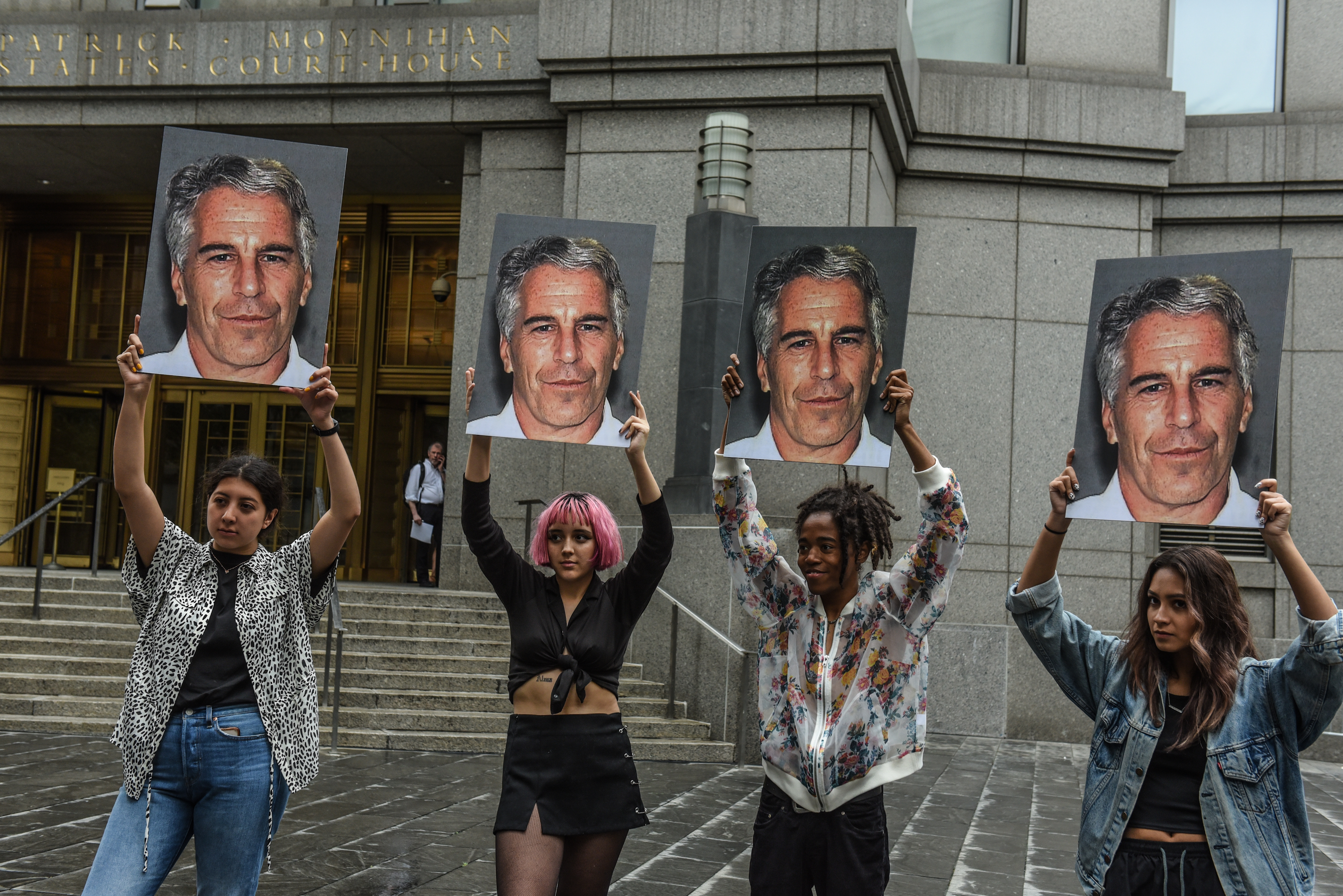- 20 Posts
- 22 Comments

 3·8 days ago
3·8 days agoInfraKiwi aims to own and operate key infrastructure assets in New Zealand for the long term. It is anticipated that it will initially be seeded with private equity investment from the Simplicity KiwiSaver and Investment Fund schemes, with the intention to list on the NZX once it achieves critical mass.
It sounds more like they will “own” the resources, not just do contracts. I’m not very good at 4d-chess but one thing that popped into my mind was the Lake Onslow Project. Then I started thinking about Electricity Generation. So, there might be a world in which things that could be SOEs in the future are owned by a Kiwi business. If InfraKiwi is listed on the NZX, then it could be folded into a “fund” that is available for everyday people to buy using their KiwiSaver.
This would be quite complimentary to Labour’s new Future Fund, so if Labour win the next election, InfraKiwi could be well positioned to work within that framework and receive government money from “Investment Fund schemes”. Labour said:
The Fund will invest in New Zealand for the benefit of everyone, building infrastructure and backing innovative businesses to create secure, well-paid jobs and grow wealth in every region.
InfraKiwi almost seems tailor-made for this. While it would need to be a for-profit company to be listed on NZX, the convenor company “Simplicity” has done some amazing pro-Kiwi things as a not-for-profit which gives me a high-level of trust for their CEO: Sam Stubbs.
deleted by creator

 2·16 days ago
2·16 days agoAgreed. Please see the sidebar for the rules:
Rules:

 8·17 days ago
8·17 days agoDry beans are even cheaper than canned beans. Just soak em overnight, put them in fresh batch of water, and then cook them for like 20 mins. Beluga lentils are smaller and cook faster than regular beans. You need to add salt to the water before you cook them. You can add fat into the beans to make them more delicious. If you have a tough set of customers, a 1/4 teaspoon of MSG makes beans really popular.
Soaking them and tossing the water makes them less windy according to research-based evidence.

 4·18 days ago
4·18 days agoIt’s just a bit of a bummer that it will now be owned by foreign investment firms.

 9·18 days ago
9·18 days agoI don’t see either of the dominant political parties making any meaningful changes to address these issues. The current government acknowledges the issues in their Budget Policy Statement 2025 but then acts in contradiction to their own statements, by disestablishing Callaghan Innovation and gutting CRIs. Their Strategy for AI is basically a “legal thumbs up” with no incentives for businesses to move into this sector.
Instead of investing in public schools, they are allowing charter school which will make education pay-to-play, which will grow inequality at a time when young people are already locked out of the housing market. All while teachers are walking out in protest over low wages.
My fear is that when many young people are disenfranchised and aren’t offered a “good deal” to participate in society, then we will get more crime and more drugs.
Labour isn’t going to fix it and National seems to be actively sabotaging it.
I just read the book “Abundance” and I can see many of the partisan issues described in the book in the New Zealand context. We’re cooked.

 1·19 days ago
1·19 days agoEmpty words are the currency of the United Nations. I agree politics is infuriating. Standing with your back to the offenders while the 800 ton gorillas commit genocide is sometimes the best we can expect from nations that don’t even have a military budget.
Have you personally considered flying to a more effective place to go protest?

 6·19 days ago
6·19 days agoI 100% support this strike.

 7·20 days ago
7·20 days agoYes. “Rainbow Community” or “Rainbow Communities” has been used since the early 00s. If you want to use the term then using the plural “Rainbow Communities” is preferred as an acknowledgement of the diversity within the cohort.
If you don’t see the problem you might have two classes of enemies now 😂

 7·28 days ago
7·28 days agoThe question was:
Do you strongly agree, agree, disagree, or strongly disagree with the following statements
The statements:
- “You have friends with political views different from your own.”
- “All immigrants who came to New Zealand illegally should be deported.”
- “New Zealanders may have to resort to violence in order to get the country back on track.”
Based on 1,000 responses, we’re 14% vs America’s 30%.

 11·30 days ago
11·30 days ago“If there weren’t unions: people would just have to individually put up with our shit”

 1·1 month ago
1·1 month ago⬇ AI Summary of the original 174 page report 🤖
spoiler
The New Zealand Drug Foundation’s 2025 report, Safer Drug Laws for Aotearoa New Zealand: Evidence to Inform Regulatory Change, is a major evidence-based review arguing that New Zealand’s 50-year-old Misuse of Drugs Act 1975 (MoDA) has failed to achieve its goals and should be replaced with a health-centred, evidence-driven legal framework.
Core Thesis
The report asserts that criminalisation has not reduced drug use but has deepened harm—particularly for Māori—while blocking access to effective health interventions. It calls for a new regulatory model that treats drug use primarily as a social and health issue, not a criminal one.
Historical & Policy Context
- The MoDA, influenced by mid-20th-century UN conventions and US policy, became law in 1975.
- It enshrined prohibitionist drug control and criminal penalties that persist despite global shifts toward harm reduction.
- A 2011 Law Commission review recommended repealing MoDA and creating a new health-led Act, but its proposals were largely ignored.
- Limited reforms (like 2019’s police-discretion amendment and 2021’s legalisation of drug checking) show isolated progress, not systemic change.
Key Evidence of Failure
- Rising drug harms: fatal overdoses have surged to roughly three per week (2024), mainly from opioids and adulterated synthetic substances.
- Drug use increasing: wastewater data show record methamphetamine, MDMA, and cocaine use.
- Prices falling: meth and heroin prices have dropped dramatically since 2002, indicating abundant supply despite strict laws.
- Māori inequity: Māori make up over 50 % of drug-related imprisonments and experience double the overdose mortality rate of non-Māori.
- Treatment gaps: more than 350 000 adults have unmet addiction-treatment needs.
- Criminalisation costs: tens of thousands of people bear lifelong convictions that limit employment and wellbeing.
Health & Social Consequences
- Hospitalisations for drug poisoning exceed 500 per year, and stimulant-related cases have grown six-fold since the mid-1990s.
- Over 1,200 overdose deaths occurred between 2016–2024.
- Substance dependence strongly correlates with long-term benefit receipt and poverty.
- Drug harm rankings show alcohol as the most damaging substance overall—worse than most illegal drugs.
Public and Expert Support for Reform
- 2022 polling: 68 % of New Zealanders support rewriting MoDA for a health-based approach.
- UN and global health experts now widely endorse decriminalisation and regulated supply to improve human-rights outcomes.
- Coroners, the Law Commission, and the Human Rights Council have all urged review of NZ’s outdated laws.
Proposed Path Forward
The Foundation recommends:
- Repeal and replace MoDA with a new Act administered by the Ministry of Health.
- Decriminalise personal possession and use, redirecting police and courts toward diversion, education, and treatment.
- Establish a licensing framework to regulate lower-risk substances and enable harm-reduction services (e.g., drug checking, supervised consumption).
- Embed Te Tiriti o Waitangi principles to ensure Māori leadership and equity in policy and service design.
- Create an independent, evidence-based authority to regulate substances and adapt swiftly to emerging drugs.
Conclusion
The report paints a stark picture: Aotearoa’s drug laws have created harm rather than prevented it. After five decades of prohibition, the Foundation argues that a shift toward regulation, public-health interventions, and Māori-led solutions is the only way to make drug laws “safer for all New Zealanders.”

 2·1 month ago
2·1 month agoIsn’t debt the alternative to rates rises?
Yes, and: Elected members seem to treat them the same; which is why I keep conflating them in my posts.
Popper wrote “The Open Society and Its Enemies (1945)” while at University of Canterbury:
https://en.wikipedia.org/wiki/The_Open_Society_and_Its_Enemies
This book came to mind when I wrote “… if regular people activate and push for the right things.”

 2·1 month ago
2·1 month agoI think you are right to question water. The Three Waters thing got needlessly politicised. In the future, we’ll see more shared infrastructure and more “shared blueprints” for how to do things as we go forward. I don’t agree with the current central government’s austerity (they recommended shuttering all regional councils) but I do think that there is a lot of overlap in services. It’s pretty amazing how much autonomy the councils have, but one problem with that autonomy is that many of them reinvent the wheel.
Organisations, like LGNZ which you linked to, are already working to streamline things and provide economies of scale to local councils.
The problem with debt is that it is not used like LGNZ described. It is used to shift the burden down to the next batch of elected officials and to our children. This is done without enough public consultation. My view is that there isn’t enough long-term accountability, and we need some sort of meaningful cap on rates rises; with exceptions for emergencies of course. Anything above and beyond that budget should have to go for a referendum: e.g. “Let’s take on debt to build a sports field!” should be voted on by constituents.
That would require increased engagement in local government which has been in serious decline as documented by numerous inquiries over the last 5 to 10 years.
It’s a wicked problem, but it’s not insurmountable if regular people activate and push for the right things.
Have you read any Karl Popper?

 2·2 months ago
2·2 months agoI generally agree on more services is better. I think we’re in a bit of trouble though. There doesn’t seem to be a universal method of determining rates. AFAICT the councils spend until they need to raise rates, then people complain, and then (sometimes) it’s too late:
“Council debt in New Zealand is very high compared with most other subnational government systems around the world,” he says. “This is double, or sometimes triple, the equivalent debt ratio in comparable municipal systems in countries like Finland, Sweden and Switzerland.”
This “high and rising debt burden” was a common factor behind S&P’s decision to downgrade 18 councils in March 2025, plus a few other downgrades over the past 18 months.
Some councils are bumping up against their self-imposed debt limits. This may constrain their ability to invest in infrastructure for the future or to respond to an unanticipated shock.
But self-imposed debt limits can ultimately be amended by councillors. A greater concern is the debt ceilings that arise from Local Government Funding Agency covenants. These are ‘hard’ limits because the lender may cut off financing or seek accelerated repayment from councils that breach them.
Foo isn’t surprised that total debt is set to tick over $40 billion in 2026. He says councils are still borrowing heavily, largely to catch up on the nationwide infrastructure deficit, in an environment where there is political pressure to rein in rates increases.
From: https://newsroom.co.nz/2025/09/17/newsroom-candidates-survey-alarm-as-councils-breach-debt-ceilings/
There are more stories:
- https://thespinoff.co.nz/the-bulletin/23-09-2025/the-rates-battle-continues-as-council-debt-rises
- https://www.thepress.co.nz/nz-news/360776201/new-council-benchmarking-figures-show-high-debt-levels
And government sources:

 3·2 months ago
3·2 months agoYeah, it’s a bit of a chicken-and-egg problem. If it’s nice to ride a bicycle then people ride bicycles. There are selfish and vocal minorities on either side. The lycra-wearing “activist” cyclist riding two abreast; and the staunch car advocate that sees cars as integral to the economy. Our culture has been so car-based for so long it will take a while for the shift to happen. The research is pretty clear.
For nice-to-haves: I’d be happy to see rates rises pegged to wages; so councils can only raise rates in line with wage growth. It’s a bit simplistic and reductive but if there aren’t meaningful limits then short term political decisions will always win out over long-term financial responsibility.
Creating a nice-to-have budget and then letting constituents vote on how that budget is spent is one way to increase engagement.
Signed - The self-proclaimed best armchair political scientist (Ha!)

 1·3 months ago
1·3 months agoIt’s an interesting distinction you bring up. What is our goal? Do we want to ameliorate the plight of the poor with a fuel tax or RUCs? If that was the goal wouldn’t a tax based on the age or price of the vehicle be more effective?
Personally, I was heavy vehicles and gas guzzling vehicle to be charge more because they:
- put more wear of the roads
- requie us to import more fossil fuels

 3·3 months ago
3·3 months agoIt’s mildly annoying to have to remember to go buy them and the slightly unnerving when you realise you’ve gone over. I’ve never got pulled up on being over and I was unwhittingly driving around for ~3 months that way.
In rural towns I’d say enforcement is passive in that they mainly rely on vehicle sales and other events to trigger re-ups. It is weird how many diesels have broken ODOs compared to petrol cars. 🤔










Putting garbage in clean plastic bags to throw it away is an absurd practise. Why can’t we just transfer it in reusable bins?